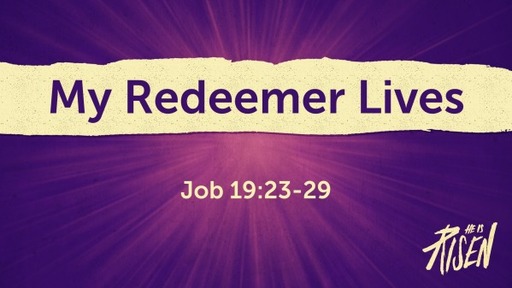My Redeemer Lives (2)

1. The Plight of Man (vv.23-24)
2. The Resurrected Redeemer (v.25)
3. The Promised Resurrection (vv.26-29)
There are some faint glimmerings in men of reason which teach that the soul is something so wonderful that it must endure for ever. But the resurrection of the dead is quite another doctrine, dealing not with the soul, but with the body. The doctrine is that this actual body in which I now exist is to live with my soul; that not only is the “vital spark of heavenly flame” to burn in heaven, but the very censer in which the incense of my life smokes is holy unto the Lord, and is to be preserved for ever. The spirit, every one confesses, is eternal; but how many there are who deny that the bodies of men will actually start up from their graves at the great day! Many of you believe you will have a body in heaven, but you think it will be an airy fantastic body, instead of believing that it will be a body like to this—flesh and blood (although not the same kind of flesh, for all flesh is not the same flesh), a solid, substantial body, even such as we have here. And there are yet fewer of you who believe that the wicked will have bodies in hell; for it is gaining ground everywhere that there are to be no positive torments for the damned in hell to affect their bodies, but that it is to be metaphorical fire, metaphorical brimstone, metaphorical chains, metaphorical torture. But if you were Christians as you profess to be, you would believe that every mortal man who ever existed shall not only live by the immortality of his soul, but his body shall live again, that the very flesh in which he now walks the earth is as eternal as the soul, and shall exist for ever. That is the peculiar doctrine of Christianity. The heathens never guessed or imagined such a thing.
